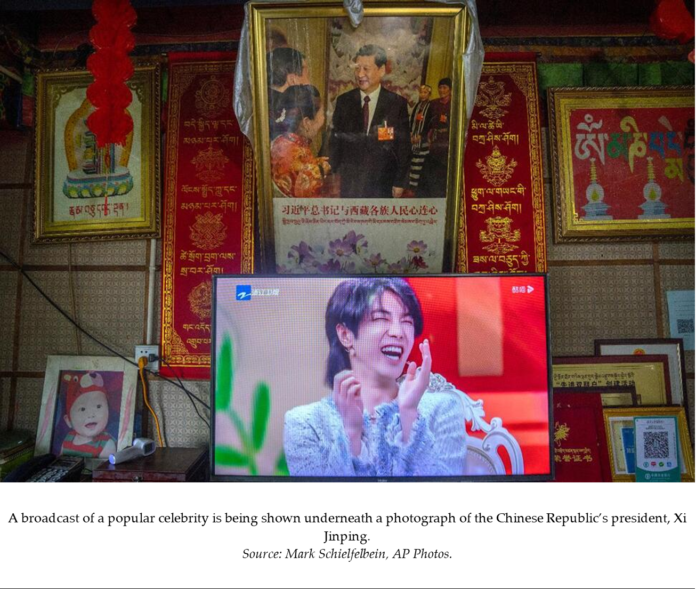by Angelina Hu
In recent months, China has been enacting progressively stricter regulations in the fields of entertainment and education. On August 31st, all minors under 18 were prohibited from playing mental and physical growth of children. Growing rates of near-sightedness and concern for poor academic performance in favor of games are cited as the main causes of concern.
Following that, China has also begun censoring feminine male figures and the LGBT community in general within the media. No official law was enacted, but the government has been forcing broadcasters to stop airing anything containing content deemed as inappropriate for the youth of China; this includes pop stars who were inspired by K-Pop styles of music and dress, as well as any show, game, or otherwise that features LGBT representation.
Furthermore, celebrities who do not fall under these categories are also being targeted; fan-culture and the idolization of media icons has been deemed as unhealthy, and thus, many onlinevideo games on weekdays. Children can now only play from 8:00 to 9:00 pm on Fridays, Saturdays, and Sundays. All video game companies must use a real-name identification system for all of its players. This ban is one attempt in a history of discourse with the gaming industry for the sake of promoting the fanclubs and fansites have been taken down, especially ones for popular movie stars like Zhao Wei. Shows featuring them have also been censored from streaming platforms.
It’s not just the characters that are getting shows banned, either; for example, hit Netflix show “Squid Game” was banned from the beginning from airing in China, partially due to licensing issues, but also in part to the “dark subject matter” of the show. Recently, the keyword “Squid Game” has also been censored on major e-commerce websites, mostly in order to prevent children from obtaining merchandise of the show (since people were able to pirate the show with a bit of work), especially for Halloween. This follows the government’s trend of protecting the children from impure influences.
Such influences are not localized to China alone; foreign tutors, especially from the United States, have also been banned and communication platforms for such tutoring cut off. This is part of an ongoing attempt at raising nationalism by preventing cultural diffusion from Western countries, where morals and priorities are very different.
To summarize, China’s ongoing campaign to curb the entertainment industry’s growth is an attempt to mold the next generation back into the competitive students that Chinese children in the mid to late 1900s were, as well as curbing any behaviors deemed as unhealthy, whether that be physically or mentally. It is also an attempt at promoting nationalism by creating an ideal, uniform, government-approved world of media to immerse the people in.










